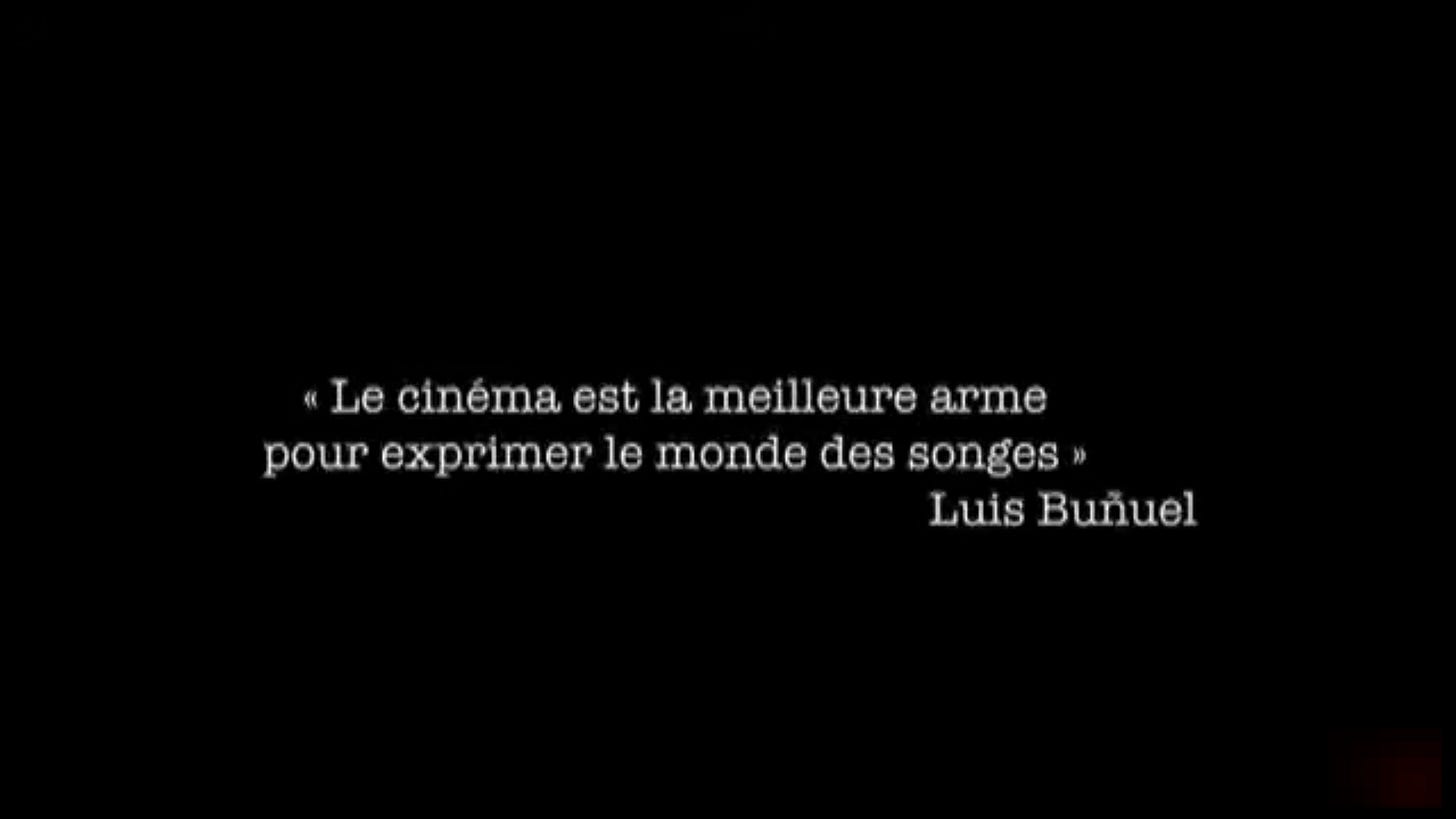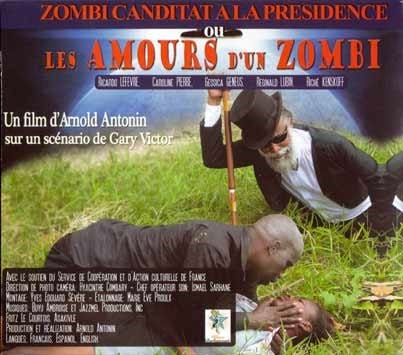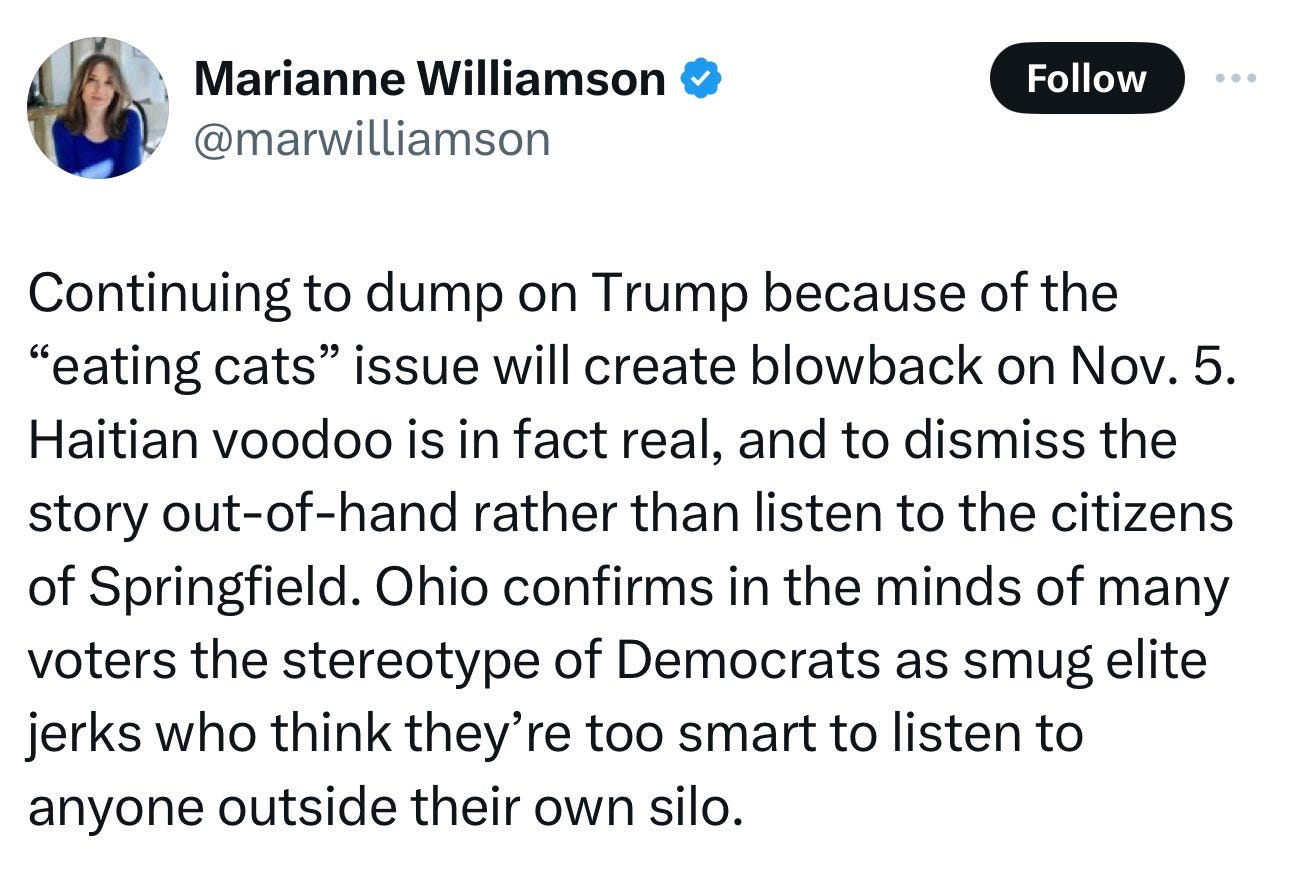For the last few years, I have used October to give myself a viewing assignment: a different horror film each day. Now that I have escaped the real life horror of New Zealand’s public service, I intend to write a piece inspired by each film.
My second film is Arnold Antonin’s The Loves of a Zombie or can a Zombie be President? / Les amours d'un zombi (2010).
I like to structure my October viewing around themes. For example, last year, each of the 31 films I watched was from a different country. Planning my 2024 screenings, I knew I wanted to watch a bunch of films about voodoo. Some of my favourite horror movies deal with voodoo, from Jacques Tourneur’s I Walked with a Zombie to Bertrand Bonello’s Zombi Child. Growing up, I frequently rewatched James Bond facing off against a voodoo conspiracy in Live and Let Die. I’ve been really looking forward to finally seeing Angel Heart, The Serpent and the Rainbow, Scream Blacula Scream and Tales from the Hood over the course of the month.
But I recently saw this tweet from Marianne Williamson:
When Williamson entered the Democratic primary in 2020, she had a reputation as a new age grifter who lacked substance. By the time she dropped out, she’d earned the respect of many ‘Bernie Bros’ for being slightly left-of-centre on some issues. ‘Crystal Lady’ may have started as a slur but had turned into a term of endearment. Why then, is she now giving credence to the (resoundingly discredited) racist rumours spread by Donald Trump and JD Vance that Haitian immigrants are eating people’s pets in Ohio? What is it about folk religion among the African diaspora in the Americas that makes it uniquely scary and mystified to people like Williamson?
Within this fraught context, I decided it wouldn’t feel right to watch a bunch of (mostly American and French) films that tap into these same prejudices unless I started out with a Haitian film.

The wealthy countries of Europe and the Americas have never forgiven Haiti for being the first sovereign state formed by a successful slave uprising. The centuries since have been characterised by invasions, neo-colonialism and the Haitian Independence Debt (essentially reparations owed to former slave owners for lost revenue) which was owed to former colonial master France long into the 20th Century. Meanwhile, countries like France and the US (both of whom had revolutions at a similar time to Haiti but neither of whom faced the same level of immiseration) had access to the wealth and resources to develop (among other things) film industries. Haiti has never really been allowed to succeed in a capitalist world but the capitalists have been able to make the films that influence how Haiti (and Haitian Voodoo) are understood.
Before this month, the only Haitian filmmaker I knew was Raoul Peck. He’s an excellent director but even he needed to leave the Caribbean and tap into the wealth plundered by countries like France, the US and Germany to make his films. However, as film industries like Nigeria’s Nollywood have shown, when it comes to making a fun movie, having access to capital is secondary to creativity.
Arnold Antonin is a Haitian filmmaker with dozens of credits to his name. Within this impressive filmography, Les amours d'un zombi is one of the most celebrated. It stars Ricardo Lefévre as a zombie who, after escaping captivity, tells a press conference that he is in love with a woman (Caroline Pierre). He teams up with a sympathetic reporter (Gessica Généus) to track her down but a group of politicians schemes to exploit his new-found celebrity to get him into the presidency. Meanwhile, Baron Samedi, a Voodoo spirit know as Lord of the Cemeteries (Riché Kenscoff) has other plans.
In Voodoo, the figure of a zombie is intrinsically tied to the trans-Atlantic slave trade. In a context where human beings are forced into labour against their will, what could be worse than being brought back from the dead to keep working forever? Here, the involuntary worker is a reluctant politician. For the wine-swigging, cigar-chomping power brokers, the best candidate for the presidency is one who can be controlled.
For a state as beholden to outside powers as Haiti, the themes speak for themselves but the film is a blast. Antonin makes the most of his miniscule budget, packing the film with well-timed sex and fart jokes and getting so much mileage out of its Voodoo set-pieces, especially whenever the viewer is blessed with gleeful presence of the Baron and his guédé henchmen.
After watching this movie, I have no doubt that a zombie (unlike Marianne Williamson) is perfectly capable of being president.







